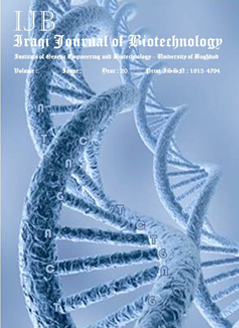Large Deletion of Sex Hormones Binding Globulin-SHBG Gene in Iraqi Women with Polycystic Ovary Syndrome-PCOS
Abstract
Polycystic ovary syndrome is the most common, yet complex, endocrine disorder affecting women in their reproductive years. The etiology of PCOS is still unknown, yet, there is increasing evidence to support a major genetic basis, as the syndrome have strong familial predisposition. More than one gene contribute to the heterogeneous phenotype and the clinical and biochemical presentation. Patients with PCOS may present complaining of irregular or unpredictable menstrual cycles, unwanted hair growth, acne or scalp hair loss, or unexplained weight gain or overweight, and infertility. This study explores the investigation mutations of sex hormones binding globulin SHBG gene in Iraqi women effected with polycystic ovary syndrome PCOS. Genomic DNA was extracted from these samples. SHBG gene was amplified by PCR using specific primer. Then, PCR products were subjected to digestion with BbsI restriction enzymes and electrophoresed on 2.5% agarose gel. Hence, the presence of two fragments, 61bp and 30 bp band , indicates normal homozygosity for alleles, the presence of three fragments, 91bp,61bp and 30bp, indicates heterozygosity mutant for alleles and a single 91bp band indicates homozygosity mutant for the alleles. By carrying out the DNA sequencing, the analysis revealed that the PCR products located between the end of the intron 7 and the start of the exon 8 (244174-24184). The analysis also revealed that a novel deletion was recognized in the PCR product of the PCOS patients involving the exon 8 which plays an essential role in PCOS. As a conclusion, PCOS patients could be due to the novel deletion detected by this study.


